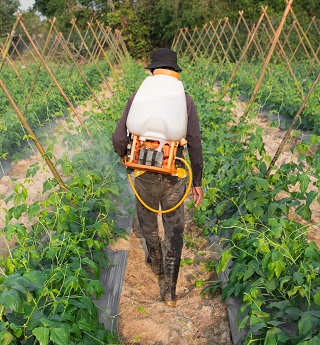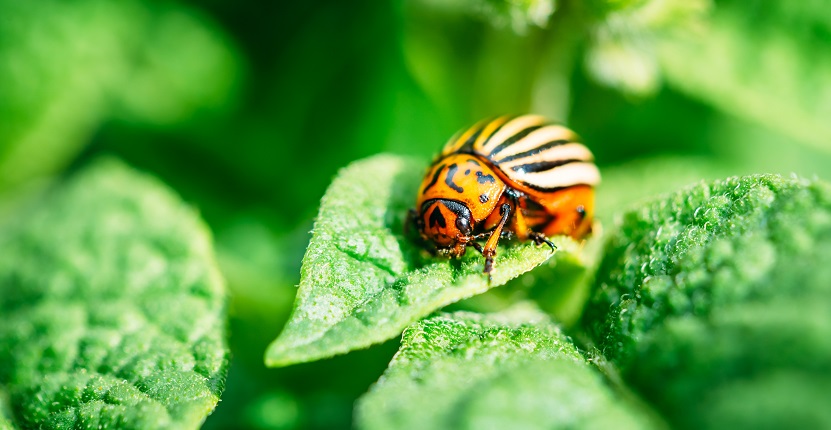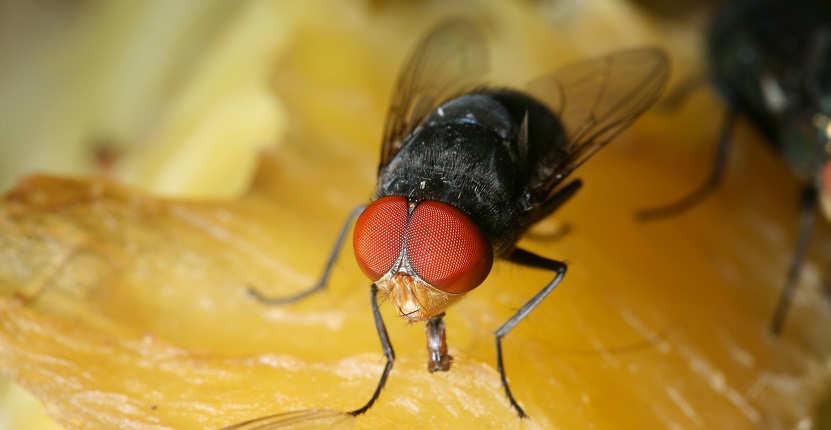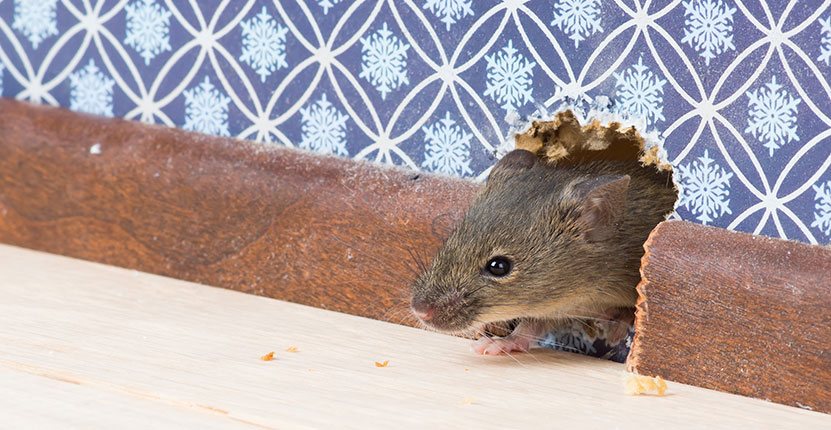Nothing else can frustrate you more than to find your garden infested with bugs and insects that are eating away your healthy plants. The best solution would be to find out some preventive means and methods of removal and eradicate them instead of wasting your time and money.
It can be very disappointing to find your once beautiful organic garden just reduced to nothing due to an infestation. A few guidelines will help you develop a better garden. The most important factor in maintaining your garden is not just the removal of the bugs but, to learn how to prevent it from being infested.
The Truth About Organic Pesticides
Whether you are an expert or a novice you are bound to have insects and bugs invading your garden. As the saying goes prevention is better than cure, it is much easier to keep insects and bugs at bay. Treating an infestation is a difficult and long process. It is not advisable to use organic sprays as they can affect soil life.
The purpose of pesticides is to kill insects and bugs. So even when using organic pesticides, bugs that are enhancing the soil are also destroyed. Pesticides can also affect the pH balance of the soil. Pesticides leave a poisonous layer on the plants which are not easily removable and destroy microorganisms that are not very helpful to the crops.
Organic or even natural pesticide made from soap and water that is most commonly used to spray crops while treating an infestation of insects and bugs, can destroy microorganisms in the soil and thus change the pH levels.
So to maintain the pH balance in the soil and grow organic crops it would be wise not to fight the bugs by spraying them with pesticides, instead of controlling them from attacking your crops. Whatever you do, do not spray your crops even with organic pesticides.
Naturally Preventive Methods

How are soil microbes connected to an infestation of insects and bugs?
The soil has microbes that help feed the crops, keeping them healthy and protecting them against an infestation. While spraying destroys these microbes and the pH balance of the soil, also making the crops dependent on the pesticides.
12 Keys to Help Prevent Garden Insects and Bugs
Some natural preventive measures are;
- Encourage Healthy Soil:
When the soil is healthy, you will be able to grow healthy and strong crops. They will be better equipped to fight off diseases and bugs. The health of the soil can be improved by using Natural fertilizers that are made from fish and seaweed. These natural fertilizers help activate soil microbes. Thus improving soil life. - Select Resistant Varieties:
This is the most commonly used method for the removal and prevention of garden insects. Choose to grow crops that have a natural resistance to harmful insects. The Seed catalogue list will help you with the varieties that are known for resistance.Take, for example, squashes are more resistant than other squash varieties. - Plant in the Right Spot:
Those crops that need maximum sun should be grown in areas where they will receive the required sunlight. Also, crops that require moisture and more water should be grown in areas that will help and control healthy growth. It has been noticed that crops have a tendency to tolerate unsuitable conditions for some time, but in the end, the stress will weaken them making them vulnerable. Growing crops in the right place is a point to consider when preventing garden insects and bugs.
- Attract Useful Insects:
Insects tend to attack insects. Grow flowering plants like calendula, coriander or sweet alyssum to attract these beneficiary insects. Use the far end of the garden to grow perennials and flowers that grow tall. Having these insects make your garden their home to breed will eventually keep insects and bugs away. - Drive the Insects and Bugs Away:
The best way is to grow herbs like calendula, coriander, and garlic that give off a strong scent. Perennial herbs like Anise hyssop, chives and thyme can be grown at the edge of the garden. - Grow Different Crops:
Growing different crops every year confuses the insects lessening them in areas that help you handle the fertility of the soil. Let 2 to 3 years laps before you repeat the growth of a particular crop. If your garden is small and located in a shady area, it would be advisable to grow a cover crop or let the soil rest for a year or two. It takes patience as its difficult while fighting against infestation. - Interplanting Different Crops:
Interplanting means growing different crops at different intervals. Insects are used to a mono-crop setting. Farms that have a mono-crop have to spray their crops heavily to help with the removal of insects and bugs. When planting crops, herbs, and flowers alternately, this confuses the pests. It would be good to plant alternate rows of herbs and flowers to help the removal of bugs that are repulsive and vegetables with flowers and herbs that are beneficial insect- attractors. Interplanting cabbage with onions, calendula and cilantro make it difficult for the pest to find your crop. This is the best trick to confuse them. - Making Use of Floating Row Covers:
During summer use weight row covers that allow water and light to penetrate but keep the insects and bugs away. Floating row covers are only used over young plants. The sides need to be weighed down with heavy objects like a brick of rocks.After following every trick if you still find your crop seems to be suffering from an insect and bug infestation, – you might try using the permanent low tunnel hoops for the crop that is having this problem.You must remove the cover for a few hours every morning to let insect in to help pollination. - Make Permanent Walkways:
Permanent pathways welcome beneficial insects whereas tilled temporary pathways destroy them and their homes.Every situation requires a different type of pathway material that has to be used. You can choose from wood chips, white covers or gravel.Permanent pathways give you the ability to have permanent beds where fertility can be developed with time. Good fertility means your garden has built up its resistance towards ‘catching a bug’. - Few Insects and Bugs? Leave Them:
Few Bugs are good and a disadvantage. They are the “baits”, for the beneficial insects that are drawn to them and remove them from the soil by feeding on them. So you can say now and again, an insect and bug “bait” is welcome. - Control an Infestation:
When there is an infestation of bugs, removal of the infected plant is essential to control it from spreading. Whether organic or not avoid using pesticides. Better start from the beginning and work your way through all the preventive methods and steps as guidelines in controlling the infestation.While treating an outbreak, it is important to keep yourself from destroying the beneficial insects so, first identify and differentiate between the insects and bugs, beneficial insects, and the larval stages of each. Because destroying beneficial insects reduces the ability of your garden to self-regulate its ecosystem. - Take Charge Rather Than being Indifferent:
Do not let an outbreak throw you off guard use it as an eye-opener to learn how to build up your garden ecosystem. Using any type of pesticides even organic ones is not the answer to removal or control an infestation.For Example: If you find the soil lacking minerals that are making it sick and susceptible to bugs, find out which organic material will help build up its resistance. And control the infestation. A few insects and bugs are natural to have and is always a reminder to keep patiently working at its improvement.
Tracking Insects and Bugs:
Make it a habit to keep a journal of your encounters with bugs, the remedy, and the results. Very soon you become a pro at it and can look out for tell tales which will help control infestation
In a nutshell, the only natural way of preventing a garden insect and bug infestation without any use of chemical sprays and maintaining healthy growth is to build up your garden’s immune system so that no bug invades it or destroy it. You must also thoroughly follow effective preventive measures, to ensure your garden is safe from an insect and bug infestation.





